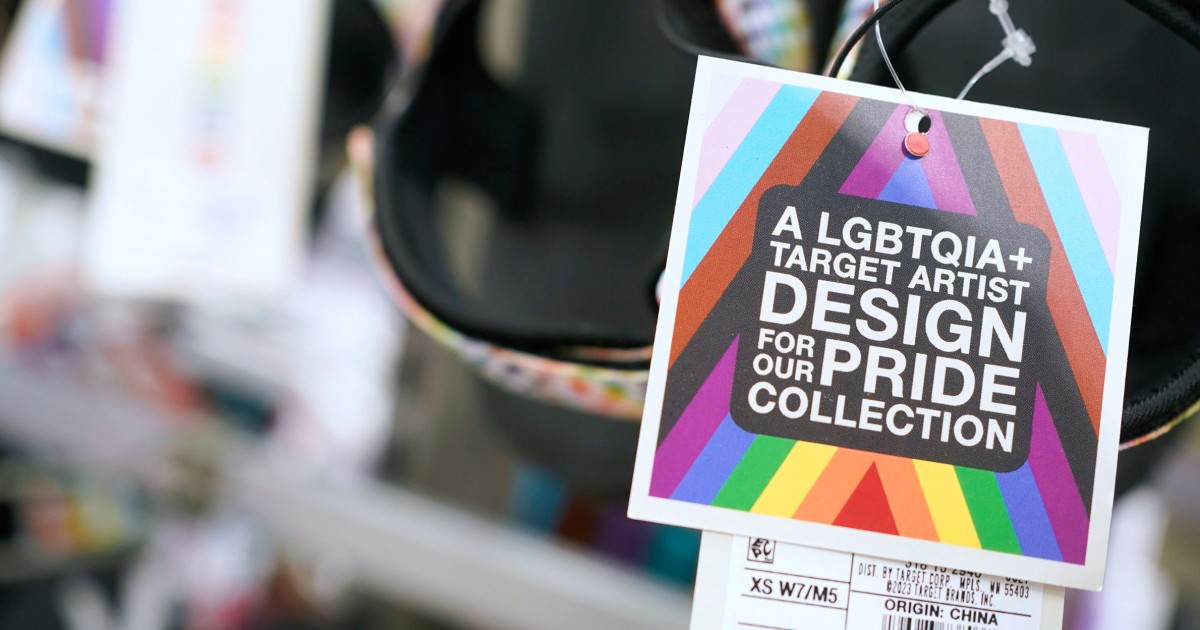Brendan Whitworth, the CEO of Bud Light parent company Anheuser-Busch, distanced the company from Mulvaney and said in the days after the backlash that it “never intended to be part of a discussion that divides people.” Roughly a week later, Anheuser-Busch confirmed media reports that two of the marketing executives who worked on the campaign were taking leaves of absence.
Drennen said that part of what is allowing Walsh to get traction is his increased national recognition in efforts to restrict transition-related medical care for minors. In February, Mississippi Gov. Tate Reeves invited Walsh to speak ahead of Reeves signing a bill to ban transition-related care for minors in the state. Earlier that month, NBC News reported that Walsh’s advocacy also influenced Tennessee’s decision to reject more than $8 million in federal funds to combat HIV.
“All of this is a coordinated attempt to make it untenable to be specifically trans in public,” Drennen said. “And one of the ways that they’ve attempted to do this is by removing any kind of political support, any kind of corporate support — just basically making it untenable to be an ally to the trans community. And I think that’s the real connective tissue between these.”
She added that Fox News covered a new North Face campaign that featured drag performer Pattie Gonia during a segment on Wednesday. On Thursday, conservative commentator Candace Owens announced during her Daily Wire show that, due to the campaign, “there will be nothing in my home that is from the North Face.”
Bob Witeck, president of Witeck Communications, a firm specializing in LGBTQ marketing, said that while the controversies surrounding Bud Light and Target were “created” by a small number of people, they were amplified by social media and some news outlets.
“The kerosene just carries a lot further today,” Witeck said of how controversies sparked by a small number of people spread further more quickly. He added that the conservative response to Bud Light’s Dylan Mulvaney campaign was ignited, in part, by commentator Ben Shapiro, and then picked up by other right-wing voices and news. Shapiro did not immediately return a request for comment.
Conversations about LGBTQ people, at a time when LGBTQ issues are more visible than ever, “become distorted quickly,” he said. Witeck added that LGBTQ advocates are likely to continue filing legal challenges against anti-LGBTQ laws because they violate the Supreme Court decision in Bostock v. Clayton County, a 2020 ruling holding that gay and transgender employees are protected by Title VII of the Civil Rights Act of 1964. The decision galvanized many grassroots conservative activists.
“Trans people have been dehumanized, people are defining them in political terms that are dehumanizing, and so it’s much easier for these media influencers to line up those things in front of people,” he said of the backlash to Target and Bud Light, even though “these aren’t the motivating issues in their lives.”
Laurel Powell, director of communications for the Human Rights Campaign, the largest LGBTQ advocacy group in the U.S., said “far-right extremists sense an opportunity,” and that is why there has been a more intense response from conservatives to Target’s Pride Month collection, for example.
“We’re coming off of the most hostile and dangerous state legislative season when it comes to anti-LGBTQ+ legislation,” Powell said. “We are existing in a country right now where one of our major social media networks has essentially become an alt-right platform. They see an opportunity, and what they’re going to find out is that they are out of step with most Americans; they are out of step with the vast majority of people who believe that LGBTQ+ people should be able to live lives free from discrimination.”
In 2016, a slew of major corporations, including American Airlines, Apple, Microsoft, eBay and Nike, signed on to an amicus brief supporting the Justice Department’s efforts to block North Carolina’s “bathroom bill,” which barred trans people from using restrooms that do not match the gender on their birth certificate.
Seven years later, the American public and U.S-based companies have only become more accepting of LGBTQ people, the latter with both their internal policies and via public marketing campaigns. However, Witeck said the difference between then and now is that lawmakers have proposed nearly 500 bills to restrict LGBTQ rights in dozens of states.
“In 2016, you had just one state doing something novel that other states weren’t doing,” Witeck said. To take a stand on even 10 of the bills proposed this year would be a challenge, “and most major corporations are based in all of those states.”
Witeck said he expects Pride Month this year to be “militant,” because LGBTQ people are anxious and worried.
“Corporate allyship is going to be tested like we’ve never seen,” he said. “Allies have got to really be prepared to grow spines, to really stand by their values.”
